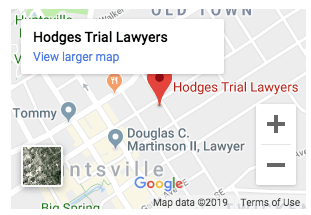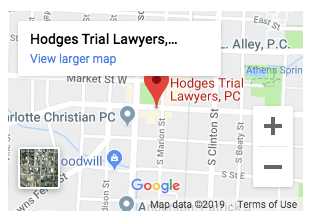Large trucks have a long list of safety concerns and hazards that smaller vehicles simply don’t have to deal with. That’s why state governments and the FMCSA are so strict about CDL training and licensure requirements—heavily restricting who can drive an 18-wheeler decreases the likelihood of an 18-wheeler accident. However, even with these restrictions, human error is always a factor. As a driver, it’s important to know the risks of a 18-wheeler accident and protect yourself.
If you or someone you love has been injured in a truck accident, Hodges Trial Lawyers is here to help you plan your next steps and fight for compensation. Call us at 256-826-4129 to set up a consultation with our team now.
Regulations Affecting 18-Wheelers
The FMCSA has a long list of regulations affecting 18-wheelers. These regulations have gone a long way in decreasing accidents and holding both individual truck drivers and trucking companies accountable. Regulations include:
- Extensive regulations regarding the storage and transportation of hazardous materials, as well as the labeling of trucks that are carrying hazardous materials
- Hours of service regulations that outline how often a driver must take breaks, how much they can drive before a full 10 hours off-duty, and how much they can drive in a seven- or eight-day period
- Drug and alcohol testing requirements
- Cargo securement rules that specify how far cargo may travel during deceleration and acceleration, as well as which securement devices can be used and how they can be used
These regulations can be helpful to victims of 18-wheeler accidents. A driver or company in violation of these regulations may be considered negligent. Working with a Huntsville, AL truck accident attorney is crucial if you want to uncover these violations.
Maneuverability and Visibility Limitations

There’s no doubt that tractor-trailers have sizable maneuverability and visibility limitations. Drivers go through extensive training to learn how to work around these limitations, but they can still play a role in accidents. To start, 18-wheelers have a significant turning radius because of their long wheelbase. While this is rarely an issue on the highway, it can be catastrophic on tight city roads.
Everyone’s seen a large tractor-trailer stuck at an intersection with a growing line of cars behind it as the driver tries desperately to get out of their stuck position—and that’s the best outcome of this situation. The worst outcome is a driver overshooting or undershooting their turn and hitting oncoming traffic.
Trucks also have massive blind spots that other drivers generally aren’t aware of. This can cause serious issues when a truck driver is attempting to turn or switch lanes. Motorists must be aware of these blind spots and do their best to pass through them as quickly as possible.
The main visibility issue of an 18-wheeler is its trailer. The trailer essentially drops the driver’s rear visibility to near zero. Luckily, there are semi-truck backup cameras and other technological advances that are striving to fix this problem.
Weight Distribution Concerns
Load distribution is critical in 18-wheelers. A load that is even slightly unbalanced or too large for the truck can lead to preventable collisions. At best, the truck is unwieldy and difficult for the driver to handle. At worst, the cargo slides to the left, right, front, or back, leading to the driver losing control and causing a collision.
Tractor-trailers have very high centers of gravity when compared to smaller vehicles. This puts them at heightened risk of rollovers, a problem that becomes even more prominent when a driver has an unbalanced load, makes sharp turns or lane changes, or drives on an uneven road surface.
Braking Issues
An 18-wheeler’s brakes suffer enormous wear and tear throughout the course of a week. This is why inspections are such a critical part of a driver’s job. Even the newest brakes can’t change the fact that a tractor-trailer needs much longer to stop than a smaller vehicle. This extended stopping time can lead to rear-end crashes.
Another concern for drivers is brake fade. Brake fade happens when the brakes overheat and the heat does not have time to dissipate. Consequently, the brakes are less efficient and the likelihood of a crash increases.
Choose Hodges Trial Lawyers for Your Truck Accident Claim
Truck accidents can lead to severe or fatal injuries, forever changing the course of victims’ and their loved ones’ lives. Let us help you fight for justice. Call our team at 256-826-4129 or contact us online to set up a consultation now.
Check out our Google reviews and Yelp Reviews



